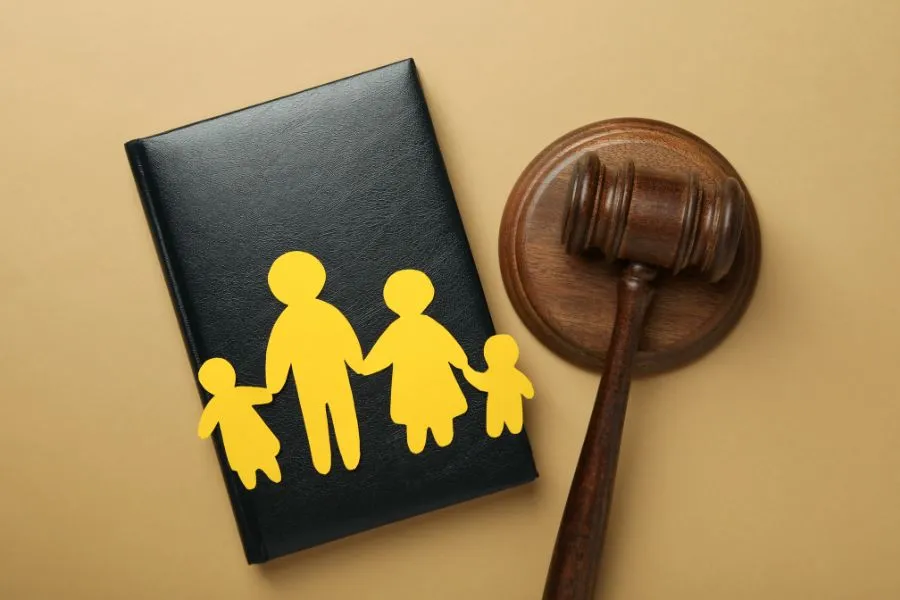Divorce is rarely simple, but adding digital assets into the mix? That’s a whole new level of complexity. As more people invest in cryptocurrency, NFTs, and other digital assets, figuring out how to divide these holdings fairly has become a big challenge in modern divorce proceedings.

The Rise of Digital Wealth in Marriages
Once upon a time, divorcing couples mostly argued over houses, cars, and bank accounts. Now, with the rise of Bitcoin, Ethereum, and other digital assets, there’s a whole new category of wealth to consider. Many people have invested in cryptocurrency over the last decade, often as a side project or long-term investment. Some have seen massive gains, while others have lost money. Either way, these assets now need to be accounted for when a marriage ends.
The problem? Unlike a house or a car, digital assets don’t come with a clear paper trail. Many cryptocurrencies are stored in private wallets, hidden behind complex passwords, and can be transferred without much regulation. That means a spouse could have a substantial amount of digital wealth that’s not immediately obvious—or easy to access.
Identifying Digital Assets
The first challenge in dividing digital wealth is knowing what exists. Unlike traditional bank accounts that can be easily traced, crypto investments can be spread across multiple platforms, wallets, and exchanges. Some might be stored in well-known places like Coinbase or Binance, while others could be sitting in obscure wallets or even on a hard drive locked away in a safe.
Spouses who suspect that their partner has cryptocurrency holdings may need to dig a little deeper. This is where financial experts and forensic accountants come in. They can analyze financial statements, look for transactions that suggest crypto purchases, and even use blockchain tracing tools to follow digital money trails.
Of course, transparency is key. Courts require both parties to fully disclose their assets, but let’s be real—some people will try to hide what they have. That’s why many divorce attorneys now ask specific questions about digital assets during financial disclosures.
How Courts View Digital Assets
So, once digital assets are identified, how are they divided? It depends on the state or country where the divorce is taking place.
In community property states like California and Texas, most assets acquired during the marriage are split 50/50. If one spouse bought Bitcoin while married, the court will likely see it as a shared asset, even if only one person managed the investments.
In equitable distribution states, things get trickier. Instead of an automatic 50/50 split, courts look at factors like each spouse’s financial contributions, future earning potential, and overall fairness. If one spouse invested heavily in crypto while the other managed the household, the judge might not divide the assets equally—but rather in a way that seems fair.
Regardless of the legal framework, dividing crypto comes with extra complications. The market is incredibly volatile, meaning the value of an asset can swing dramatically from one day to the next. A Bitcoin worth $50,000 during the divorce proceedings might be worth $40,000—or $60,000—by the time the settlement is finalized. Courts and attorneys have to factor in these price fluctuations when determining settlements.
Challenges in Valuing Cryptocurrency
Since crypto prices change rapidly, valuing digital assets is a major challenge. Some couples choose to use an average price over a specific period, while others rely on the market price on the day the divorce is finalized. Either way, this adds another layer of complexity compared to traditional assets like stocks or bank accounts.
Another issue? Tax implications.
Selling cryptocurrency often triggers capital gains taxes. If a spouse is awarded Bitcoin and later sells it for cash, they may owe a significant amount in taxes. Understanding the tax burden upfront is crucial, or one spouse could end up with far less than expected after taxes take their cut.
Methods for Dividing Digital Assets
Once a couple knows what digital assets exist and their value, they need to figure out how to divide them. Here are a few common methods:
- Splitting the Crypto. Some couples opt to transfer a portion of the cryptocurrency directly to the other spouse. For example, if they own 10 Bitcoin, they might each take 5. This ensures both people maintain exposure to any price increases (or losses) in the future.
- Trading for Other Assets. Instead of dividing the crypto itself, one spouse might choose to keep it while giving up something else of equal value. For instance, if one person gets the Bitcoin, the other might receive a larger portion of the retirement fund or real estate.
- Selling and Splitting the Proceeds. To avoid dealing with future market fluctuations, some couples decide to sell their cryptocurrency and split the cash. This eliminates the risk of price swings but might trigger tax consequences.
Each method comes with pros and cons, and choosing the right approach depends on both spouses’ comfort levels with digital investments.
The Issue of Hidden Crypto Assets
One of the biggest concerns in divorces involving digital wealth is hidden assets. Unlike a traditional bank account that leaves a clear trail, crypto can be stored in private wallets or transferred anonymously. Some spouses attempt to hide assets by moving crypto to secret accounts, transferring it to friends, or even converting it into other digital assets like NFTs or stablecoins.
Courts take asset hiding seriously. If one spouse is caught concealing digital wealth, they could face legal penalties, including losing their share of the asset entirely. Some divorce attorneys now work with blockchain analysts who specialize in uncovering hidden crypto, using forensic tools to trace transactions on the blockchain.
Legal Strategies for Protecting Digital Wealth
For those entering a marriage—or currently married—there are ways to protect digital assets in case of divorce.
- Prenuptial or Postnuptial Agreements. Couples can agree in advance how digital assets will be handled in case of separation. This can specify who keeps crypto holdings or how they’ll be divided.
- Keeping Clear Records. Tracking when and how crypto was acquired is crucial. If one spouse can prove they owned Bitcoin before the marriage and kept it separate, it might not be considered marital property.
- Staying Transparent. Even if a couple doesn’t have a formal agreement, honesty about investments and holdings can prevent major legal battles down the road.
As cryptocurrency and digital wealth become more mainstream, divorce proceedings will continue evolving to address these new financial realities. For now, couples navigating a divorce that involves crypto should prepare for a potentially complex legal process—and consider working with experts who understand both the law and the digital asset landscape.

